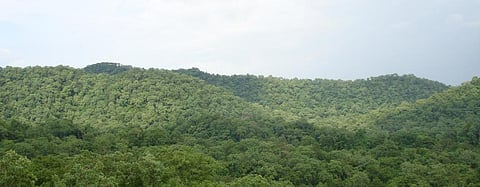

The National Biodiversity Authority (NBA) is set to tell the National Green Tribunal that it created 243,499 biodiversity management committees (BMC) and 95,525 people’s biodiversity registers (PBR) as of January 2020, a source said.
The green bench is hearing a case on the full implementation of the Biodiversity Act, 2002.
BMCs are created for “promoting conservation, sustainable use and documentation of biological diversity” by local bodies across the country, according to the NBA. PBRs contain “comprehensive information on availability and knowledge of local biological resources”.
NBA Chairperson VB Mathur told Down To Earth that it would seek a year’s extension to finish the “huge process” of creating PBRs as it couldn’t be “completed in such little time”.
The NGT had asked the Union Ministry for Environment, Forest and Climate Change in April 2019 to report on the constitution of BMCs and PBRs in every state within three months. This was related to a petition by Chandra Bhal Singh of Pune, seeking implementation of provisions of Biological Diversity Act, 2002 and Biological Diversity Rules, 2004.
The NGT was informed that BMCs were set up at only 144,371 of the 252,709 panchayats where there were supposed to be while 6,834 PBRs were documented with 1,814 in progress.
“There are places where nothing can be done in the winters. Then there are the elections. Also, PBRs need to have information from all four seasons; one has to wait at least for a year,” Mathur said in Gandhinagar on the sidelines of the ongoing 13th Conference of Parties to the United Nation Environment Programme’s Conservation of Migratory Species of Wild Animals.
“Till 2016, when the case was filed in NGT, there were just 9,700 BMCs and 1,388 PBRs. Now, till January 31, 95 per cent of the BMCs have been made,” he added.
A new framework to convert PBRs in electronic form — ePBRs — was also in progress, Mathur said. “They will have more utility than physical notebooks. All new data will now be geo-tagged,” Mathur said.
The new system will also protect intellectual property rights over traditional knowledge; information will not be shared without consent, he added.